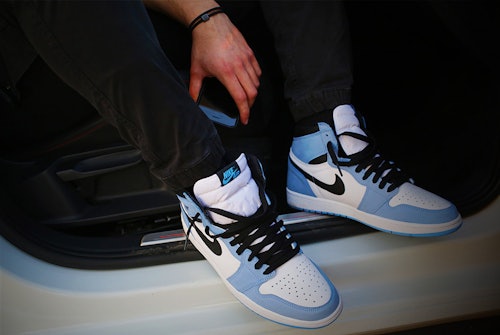- Liability Coverage
- Collision Coverage
- Comprehensive Coverage
- Uninsured & Underinsured Motorist Coverage
- Personal Injury Protection
- Medical Payments Coverage
- Pay-As-You-Go Car Insurance
- Gap Insurance & New Car Replacement Coverage
- Towing Coverage
- Rental Car Reimbursement
- Classic Car Insurance
- Ridesharing Coverage
- Minimum Car Insurance Limits (By State)
- Frequently Asked Questions
When buying car insurance coverage, you're presented with several different options—it can be confusing to know what you need and what's worth paying extra for. We explain the different types of car insurance available and who should add these coverage types to their policies.
Liability Coverage
Liability coverage is compulsory in most states in the U.S., with the minimum coverage set by each state. There are two different types of liability coverage:
- Property damage liability coverage: Helps pay for damage to someone else's property or vehicle.
- Bodily injury liability coverage: Helps pay for the other party's medical bills.
Both types help you pay for damage caused to the other party involved in the accident if you're found to be legally liable.
You can also use liability coverage to help pay for legal fees resulting from the accident.
It's essential to check your state's minimum liability coverage requirement. If you don't meet these requirements (including not having liability coverage at all), you could be fined, your vehicle could be impounded, and your driver's license could be suspended.
Collision Coverage
Collision coverage helps pay for damage done to your car after a collision. This includes a collision with another vehicle or object, such as a building, light pole, or fence. Collision coverage is optional; however, your auto lease or loan company may require you have minimum coverage.
Comprehensive Coverage
Comprehensive coverage helps pay for damage to your vehicle caused by anything else other than a collision. This includes:
- Vandalism
- Theft
- Accidentally hitting an animal on the road
- Damage caused by falling objects (e.g., rocks)
- Damage caused by weather (e.g., hail)
- Fire damage
Like collision coverage, comprehensive insurance is usually optional, but your auto loan/lease lender may make it mandatory.
Uninsured & Underinsured Motorist Coverage
In a perfect world, every driver would have enough insurance coverage to pay for your medical bills when they are at fault for the accident. However, this is not the case. Some drivers may have the bare minimum liability coverage, while others lack liability coverage completely.
In these cases, uninsured motorist coverage or underinsured motorist coverage comes in handy. For example, if you are hit by a driver who is underinsured or not insured at all, this coverage will help pay for your medical bills that the other driver's insurance should have covered.
Some states may require this type of auto insurance coverage, but not all do.
Personal Injury Protection
Personal injury protection (PIP) helps pay for some of your medical expenses and other costs associated with a covered car accident.
PIP coverage helps pay for these expenses no matter who is at fault and can cover treatment for others involved in the accident, including your passengers or even pedestrians.
In some states, PIP is required.
Medical Payments Coverage
Medical payments coverage (also known as "med pay") helps you pay for medical bills and other health services that your insurance company (both car and heath) won't cover. While
Med pay kicks in for any covered accidents and can help pay for things like:
- Hospital bills
- Ambulance costs
- Nursing care
- Dental work
- Chiropractic services
Medical payments coverage may even come into play if you're the passenger in a covered accident or an injured pedestrian.
Pay-As-You-Go Car Insurance
Pay-as-you-go insurance companies calculate your premiums based on how far and how frequently you drive instead of just taking into traditional factors, such as your age and the make and model of your car.
This type of insurance is great for those who don't drive very often, but still want to be protected.
Gap Insurance & New Car Replacement Coverage
Gap insurance and new car replacement coverage are things you should consider only if you buy a new car. These types of car insurance coverage don't make sense for second-hand vehicles.
Both types kick in when your new car is declared a total loss, either due to a collision or theft. Gap coverage helps pay the difference between what your standard insurance policy will reimburse you and what you still owe on your loan.
On the other hand, new car replacement coverage will cover the cost of a new vehicle. So your auto loan isn't affected, and you'll get a replacement vehicle.
Towing Coverage
Towing coverage is just what it sounds like—it covers the cost of getting your car towed for any reason. You can add towing coverage to your comprehensive car insurance coverage.
Note that towing coverage usually comes with restrictions. For example, your policy may only pay for towing for up to 10 miles. If you need to be towed further, you'll need to pay the difference.
Rental Car Reimbursement
If your car is getting fixed because of an insurance claim (e.g., collision), rental car insurance will help you pay for a rental car.
Note that rental car insurance coverage usually comes with limits, so you can't get 100% of a luxury car rental paid for.
You may even be able to get public transportation costs paid for while you're waiting for your car to be repaired.
Classic Car Insurance
If you have a classic car or collectible, classic car insurance will offer more protection than regular car insurance covers. This is because it takes into account that antique and collector cars will increase in value (or maintain their value) compared to standard vehicles, which depreciate pretty quickly.
To qualify for classic car insurance coverage, there are a few requirements you need to meet. These commonly include:
- Storage: Your classic car may need to be stored in a private garage, storage unit, or something similar, versus being parked on the street.
- Usage: Your classic car shouldn't be the car you use daily.
Ridesharing Coverage
If you drive for Uber, Lyft, or other ridesharing services, ridesharing coverage will help you pay for expenses that regular car insurance doesn't cover.
This includes things like vehicle repairs from business use or medical bills, should your passenger be injured in an accident while riding in your car.
Your rideshare company may already provide insurance for you as a driver, but additional coverage may help, especially if you use your car for both business and personal use.
Minimum Car Insurance Limits (By State)
Currently, New Hampshire and Virginia are the only U.S. states that don't require you to carry car insurance if you drive. However, there are minimum limits if you do choose to get car insurance in these states.
Note that some states may have other minimum requirements for things like medical payments coverage and property protection insurance. The table below outlines just the basic minimum coverages. Your insurance company can tell you what your policy needs to include to meet statewide requirements.
| State | Bodily Injury Liability Insurance | Property Damage Liability | Uninsured/Underinsured Motorist Insurance |
| Alabama |
|
$25k per accident | n/a |
| Alaska |
|
$25k per accident | n/a |
| Arizona |
|
$15k per accident | n/a |
| Arkansas |
|
$25k per accident | n/a |
| California |
|
$5k per accident | n/a |
| Colorado |
|
$15k per accident | n/a |
| Connecticut |
|
$25k per accident |
Bodily injury liability:
|
| Delaware |
|
$10k per accident | n/a |
| Florida | n/a | $10k per accident | n/a |
| Georgia |
|
$25k per accident | n/a |
| Hawaii |
|
$10k per accident | n/a |
| Idaho |
|
$15k per accident | n/a |
| Illinois |
|
$20k per accident |
Bodily injury liability:
|
| Indiana |
|
$25k per accident | n/a |
| Iowa |
|
$15k per accident | n/a |
| Kansas |
|
$25k per accident |
Bodily injury liability:
|
| Kentucky |
|
$25k per accident | n/a |
| Louisiana |
|
$25k per accident | n/a |
| Maine |
|
$25k per accident |
Bodily injury liability:
|
| Maryland |
|
$15k per accident |
Bodily injury liability:
Property damage liability: $15k |
| Massachusetts |
|
$5k per accident |
Bodily injury liability:
|
| Michigan |
|
$10k per accident | n/a |
| Minnesota |
|
$10k per accident |
Bodily injury liability:
|
| Mississippi |
|
$25k per accident | n/a |
| Missouri |
|
$10k per accident |
Bodily injury liability:
|
| Montana |
|
$20k per accident | n/a |
| Nebraska |
|
$25k per accident |
Bodily injury liability:
|
| Nevada |
|
$20k per accident | n/a |
|
New Hampshire |
|
$25k per accident |
Bodily injury liability:
Property damage liability: $25k per accident |
| New Jersey |
|
$5k per accident |
Bodily injury liability:
|
| New Mexico |
|
$10k per accident | n/a |
| New York |
|
$10k per accident |
Bodily injury liability:
|
| North Carolina |
|
$25k per accident |
Bodily injury liability:
Property damage liability: $25k per accident |
| North Dakota |
|
$25k per accident |
Bodily injury liability:
|
| Ohio |
|
$25k per accident | n/a |
| Oklahoma |
|
$25k per accident | n/a |
| Oregon |
|
$20k per accident |
Bodily injury liability:
|
| Pennsylvania |
|
$5k per accident | n/a |
| Rhode Island |
|
$25k per accident | n/a |
| South Carolina |
|
$25k per accident |
Bodily injury liability:
Property damage liability: $25k per accident |
| South Dakota |
|
$25k per accident |
Bodily injury liability:
|
| Tennessee |
|
$15k per accident | n/a |
| Texas |
|
$25k per accident | n/a |
| Utah |
|
$15k per accident | n/a |
| Vermont |
|
$10k per accident |
Bodily injury liability:
Property damage liability: $10k per accident |
| Virginia |
|
$20k per accident |
Bodily injury liability:
Property damage liability: $20k per accident |
| Washington |
|
$10k per accident | n/a |
| Washington, D.C. |
|
$10k per accident |
Bodily injury liability:
Property damage liability: $5k per accident |
| West Virginia |
|
$25k per accident |
Bodily injury liability:
Property damage liability: $25k per accident |
| Wisconsin |
|
$10k per accident |
Bodily injury liability:
|
| Wyoming |
|
$20k per accident | n/a |











Comments